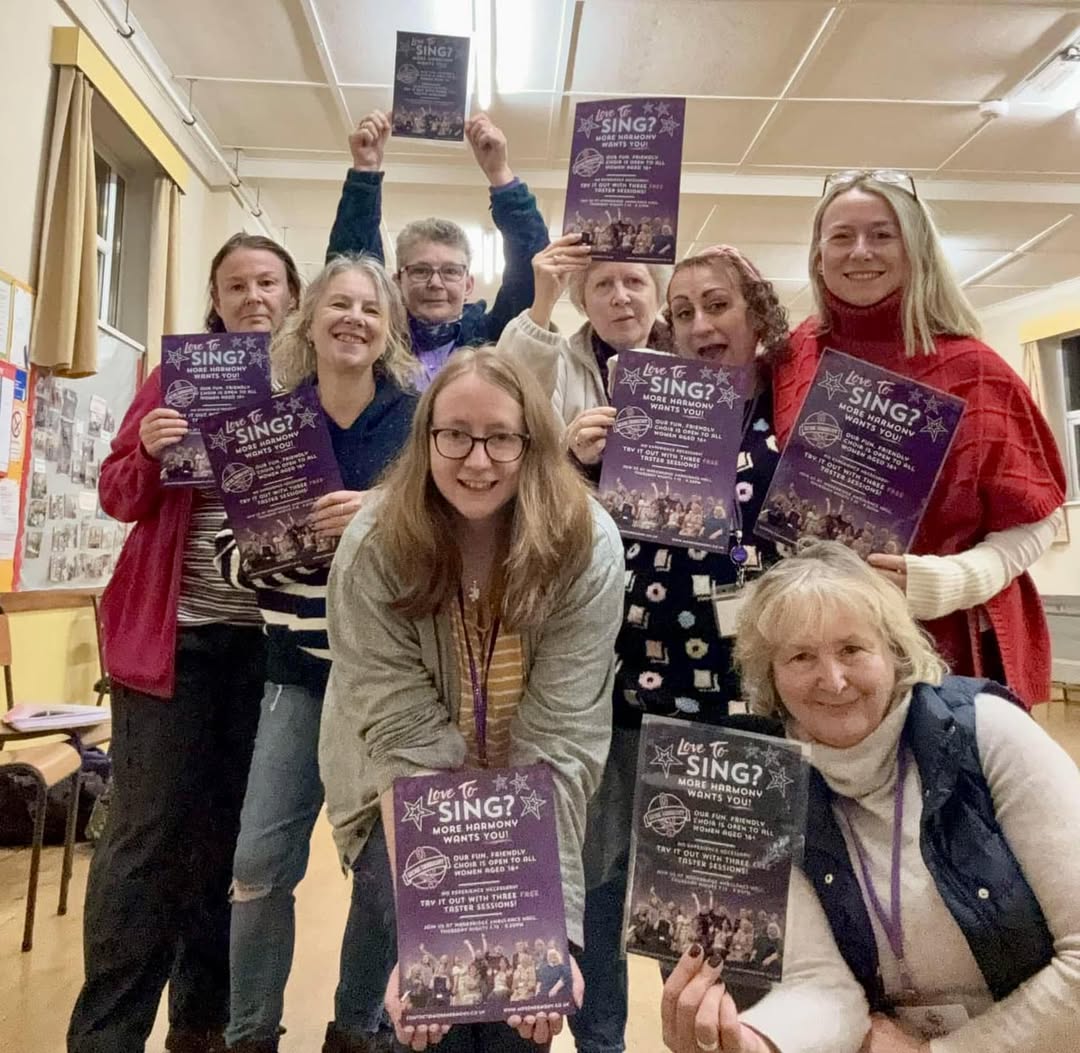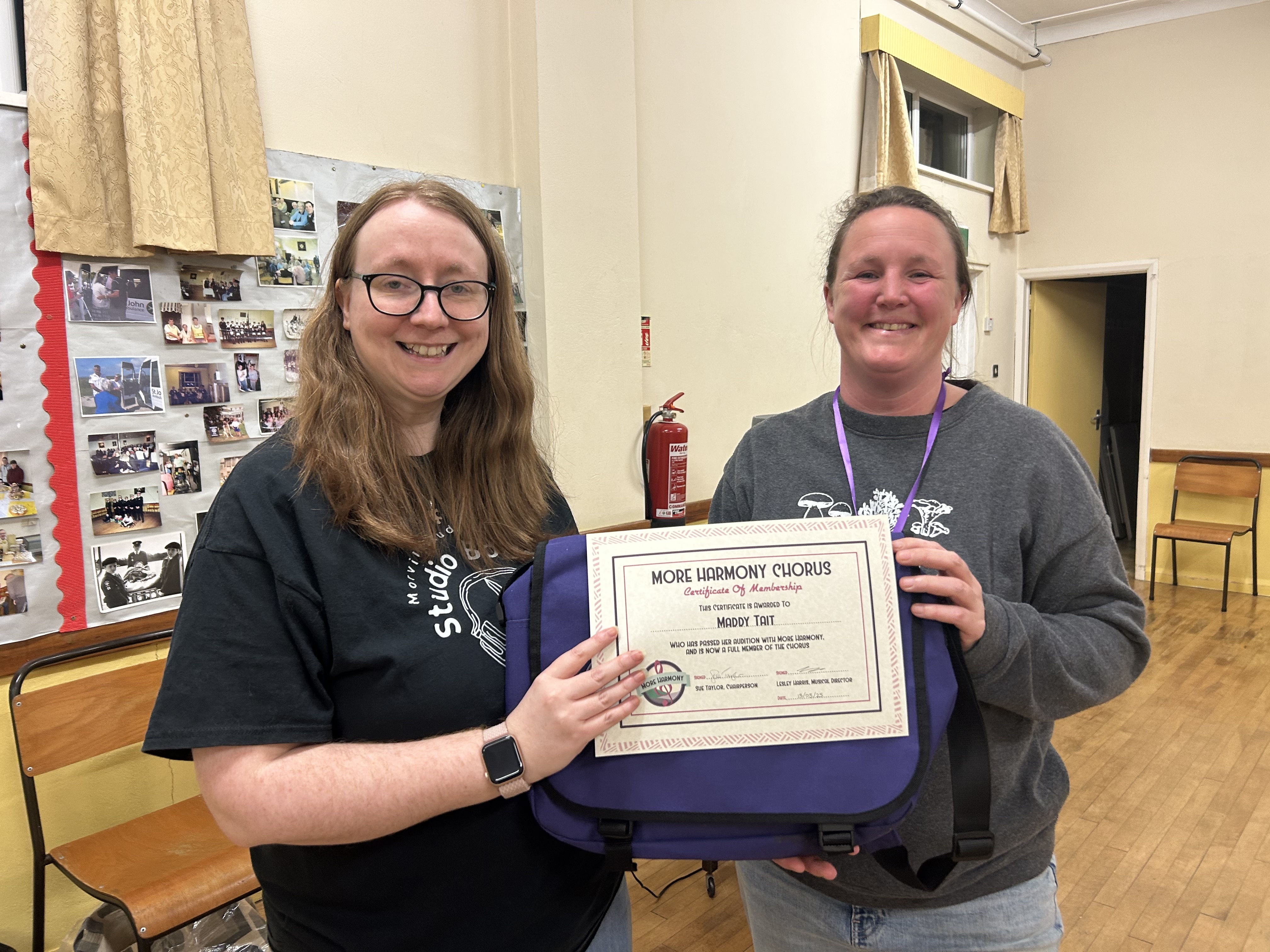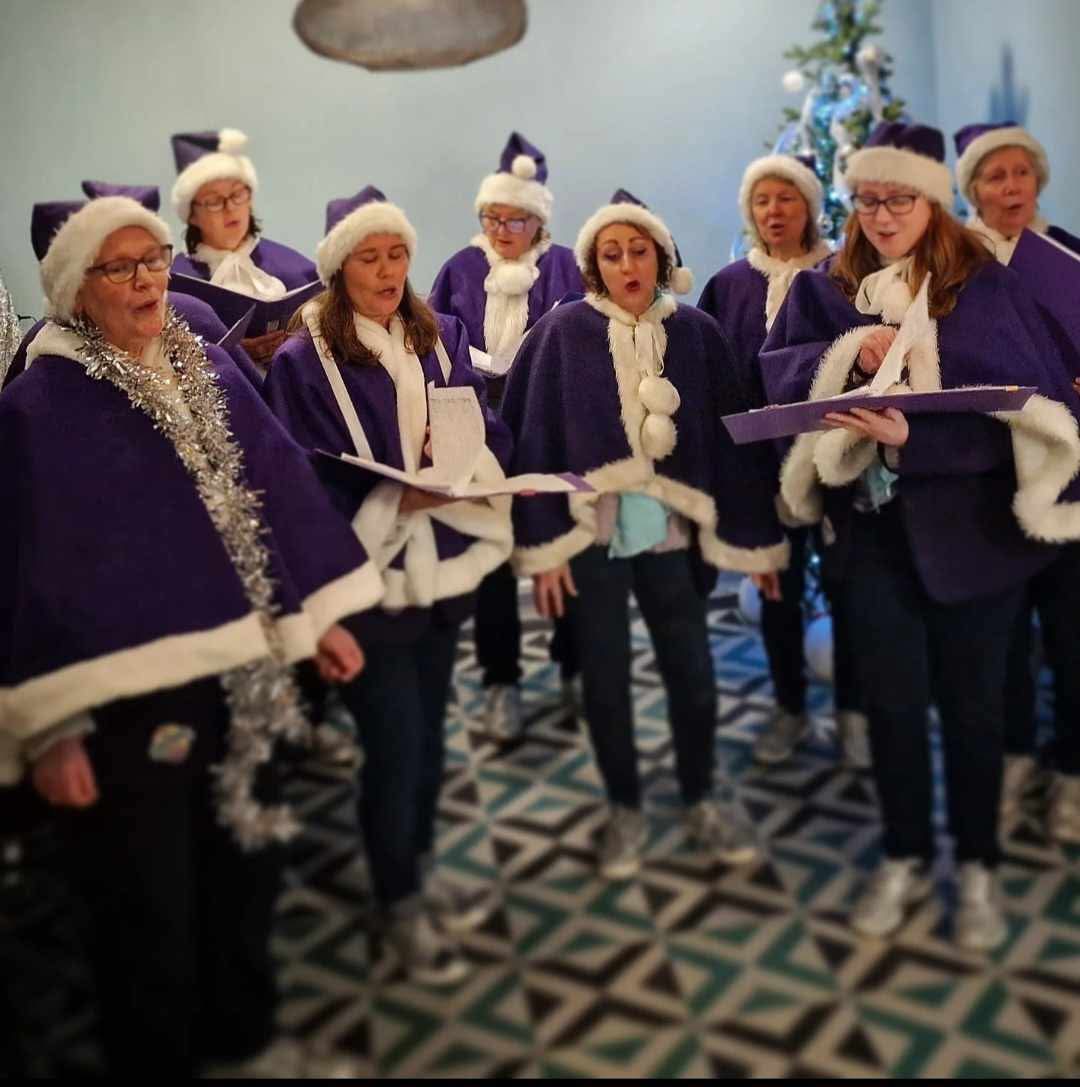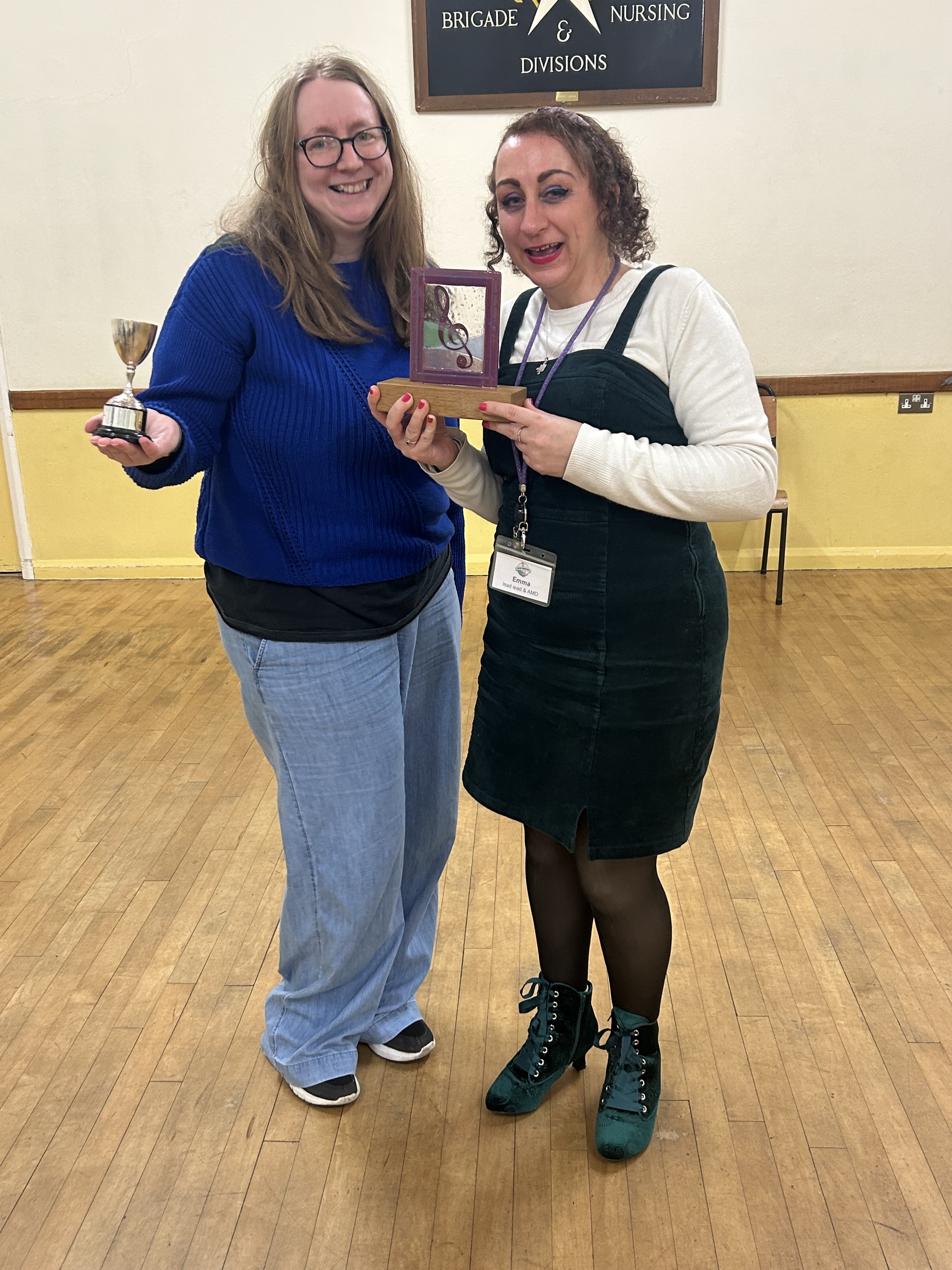What Kind of Choir Should You Join?

| Type of post: | Chorus news item |
| Sub-type: | No sub-type |
| Posted By: | Emma Tofi |
| Status: | Current |
| Date Posted: | Thu, 3 Apr 2025 |
What kind of choir should you join?
 Cornwall is known for being a musical place. From sea shanties to folk bands, you don't have to go far to find music being played and voices raised in song. So, it's no wonder that Cornwall has plenty of choirs for a wannabe singer to join! The trouble is, how do you know which is the right one for you? In this month's blog, we've decided to take a deep dive into some of the considerations that go into making your choice and - we hope - make that decision a little easier.
Cornwall is known for being a musical place. From sea shanties to folk bands, you don't have to go far to find music being played and voices raised in song. So, it's no wonder that Cornwall has plenty of choirs for a wannabe singer to join! The trouble is, how do you know which is the right one for you? In this month's blog, we've decided to take a deep dive into some of the considerations that go into making your choice and - we hope - make that decision a little easier.1. Are you a novice or a seasoned singer?
This is often the first stumbling block for anyone looking to join a choir. We can get stuck in our own heads, thinking if we're new to something then everyone with more experience is going to look down on us, or treat us differently. Right off the bat, let us tell you this: if you visit a choir rehearsal as a complete beginner and anyone treats you badly for not knowing all there is to know already? Walk away!! Singing is a wonderful, joyous experience and deserves to be shared by everyone, regardless of whether they've stood on a dozen stages or only ever sung in the shower. The right choir for you - whether it's big or small, a cappella or accompanied - will make you feel welcome from the moment you walk through the door and will support you as you learn.Another worry for new singers is whether or not they might be required to read music in order to join a choir. Our best advice is to do as much research as you can! Most choirs should have this on their website ( for example, on our "About More Harmony" page, we tell anyone considering joining that there is no need to be able to read music, as we learn from teach tracks).
As for experienced singers, finding a new choir can be a great way to freshen up your skills or even try something completely out of your comfort zone! Remember in either case, that many choirs offer a free session for you to try them out, so you won't lose anything by going along to see if you like it. In fact, here at More Harmony, we offer you three!
2. Single-Gender or Mixed Choir?
There are plenty of different reasons people have for wanting to join a single-sex choir - and just as many for joining a mixed one! This is entirely down to personal preference, so our only advice here is to think about which you might be happier with. It may be that you'd be perfectly pleased to sing in either type of choir, but for some people, there is a preference, so bear that in mind when you're researching groups in your area.3. What Kind of Music do You Want to Sing?

Music taste is entirely subjective and one person's favourite tune could be another's worst nightmare! Whilst most choirs do try to vary their repertoire, it's best to check what kind of music they choose before you take the plunge. Many choirs have either repertoire lists or video examples on their websites to help you make a decision (some examples of the type of songs we sing can be found here). After all, if you're looking to sing hymns, joining a modern pop choir might not be the right move for you - and vice versa!
It's also worth finding out whether the group sings with accompaniment or a cappella (with no backing tracks). There are pros and cons to both: some people prefer the safety of a keyboard or backing track to sing along with, whereas some singers find they get more enjoyment out of the challenge that a cappella brings - and the fact that they can hear the voices around them more clearly!
4. Size DOES Matter!
Whilst there are definitely people who are equally at home in a large group or a small one, for many of us, the size of a choir could well have some bearing on how comfortable we feel about joining. Again, there are pros and cons to both. For example, for a novice singer, a very large choir may provide a feeling of protection - you won't feel so exposed if you get a word wrong or a note out of place if there are eighty other people drowning you out! On the flip-side, a small group can be far less scary for someone new to walk into. There are fewer names to remember, it's easier to get to know everyone and you'll have a much higher level of support from a leader that only has a handful of other people in their section than you might from a leader with 30+ voices to look after!If you're an experienced singer, a smaller group could be your chance to really shine! You can share your knowledge and actually hear the difference your voice makes to the choir's overall sound - a seasoned singer may feel stifled by being in a large group; a big fish, struggling to be heard in the pond. However, it may be that you've sung in several small choirs and you feel ready to try something different!
Have a think about whether you'd feel more comfortable in a very large group or a smaller one and, if the information isn't immediately obvious on a choir's website, drop them a line and ask how big the group is.
5. How Is The Choir Run?
 Choirs and singing groups are run in all kinds of different ways and whilst it might not initially seem important to know how things work behind-the-scenes, in our experience, the more you know before you join a group, the better placed you are to get the most out of being a member.
Choirs and singing groups are run in all kinds of different ways and whilst it might not initially seem important to know how things work behind-the-scenes, in our experience, the more you know before you join a group, the better placed you are to get the most out of being a member.For example, is the choir you're thinking of joining a business, or is it a not-for-profit organisation? A business may have a whole group of people involved in keeping things operational - marketing managers, CEOs etc. This can be beneficial, as it means all you have to do is turn up and sing, plus brand recognition can give you a feeling of belonging. If your choir is one of many up and down the country, you can take pride in the achievements of other groups, not to mention make the most of opportunities to perform together or to transfer your membership should you move elsewhere. However, as with any business where profit is the name of the game, make sure you look into the small-print. If you give up your membership, do you have to pay to the end of the term, or even the year? Do you have to pay any extras on top of your monthly or annual subs, such as for branded uniform to wear when you sing? Equally, remember that when a group is run as a business, the members will have far less of a say when it comes to things like performance outfits, repertoire and rehearsal structure. If you're someone who wants to have their voice heard, a not-for-profit or community choir may work better.
More Harmony are a not-for-profit group. The subs our members pay go towards paying our bills (rehearsal venue hire, music licensing etc) and the rest goes straight back into the choir. We're proud to provide our members with their music bags and uniform. As we're run by our membership, you'll also be able to suggest songs to add to our repertoire, vote on changes to rehearsal structure and even take on a committee role if you'd like to be more involved. Being run this way also means we're cheaper than a lot of other groups, especially those run for profit. Plus, we're members of the Ladies Association of British Barbershop Singers, meaning you'll have the opportunity to attend local and national events, access education if you'd like to further hone your musical skills and even receive coaching from experts!
6. How Important Is Performance?
 Some people join a choir purely for a bit of fun, whereas others are keen to strut their stuff on the biggest stage possible! Whilst most choirs like to sing in front of an audience and show off what they can do, the size of that audience - and the level of polish required in the performance - can differ wildly. Some groups even enter local, national or international competitions! Find out what kind of performance opportunities come with singing in any choir you're looking into (their social channels or blog should reference recent performances) and pick one that is going to give you what you're after.
Some people join a choir purely for a bit of fun, whereas others are keen to strut their stuff on the biggest stage possible! Whilst most choirs like to sing in front of an audience and show off what they can do, the size of that audience - and the level of polish required in the performance - can differ wildly. Some groups even enter local, national or international competitions! Find out what kind of performance opportunities come with singing in any choir you're looking into (their social channels or blog should reference recent performances) and pick one that is going to give you what you're after.Don't be fooled into thinking only larger choirs offer big performance opportunities - we're a small group and we love performing on any sized stage we can get! Remember that if you're shy or completely new to the world of performance, any choir worth its salt will support you and give you the confidence you need.
7. Make Sure Your Values Align
Now obviously we're not saying that choosing a choir is as big a decision as picking which box to cross at a General Election, but it is a good idea to find out as much as possible about a group's ethos and values before you take the plunge. Is the choir LGBTQ+-friendly? Is the rehearsal venue fully accessible and are they open to people with disabilities? Are they affiliated with any other groups and if so, what are their values? Finding out these things in advance is a good way to judge how comfortably you're going to fit in!
For example, the More Harmony ethos is: "...to encourage respect, positivity and inclusivity between our members and to be as welcoming and accessible as possible to people of all abilities and backgrounds. Whether you've sung in a choir before or you're a total novice, you are welcome."
8. What Level of Commitment Can You Give?
We're all busy people, often juggling jobs, families and plenty more besides! Joining a choir should be something fun that slots into your life, rather than something that makes you feel overwhelmed. For that reason, it's worth being really clear about the level of commitment you can give to a choir - and asking how much they expect from you. For example, a large choir with several branches locally may not worry about whether you can attend every rehearsal, or be present for every concert, as there are plenty of people to take your place. That might work for busy singers with less free time to devote to their hobby, but for others, it can result in feeling as though you've missed out, or that your voice isn't important to the overall group. Smaller choirs may be more dependent on their singers attending rehearsals or performances, but this is balanced out by the satisfaction of feeling like you're an integral part of the team. Of course, it's not just about size, either! Some large choruses are competitive on a national or even international level and will expect singers to be available for a number of additional rehearsals and special events, whereas some small choirs know they have a core group who can carry off performances when necessary and won't mind so much if you can't be there every time. Asking what level of commitment is needed from you - and being realistic about what you can give - will help you pick the right choir for you.

Get Out There And Sing!
As we said, there are plenty of opportunities to sing in North Cornwall. We have male voice choirs, mixed groups, a cappella choruses, shanty singers and everything in between. If you're someone who loves to sing - or just wants to give it a try - there's definitely somewhere for you. We hope we've given you a few ideas on how to narrow down your search!
If you think More Harmony Women's Chorus could be for you, why not drop us a line and find out more, or simply pop along to Wadebridge Ambulance Hall on a Thursday night to see what we get up to? Rehearsals start at 7:15pm and we'd love to see you there!


